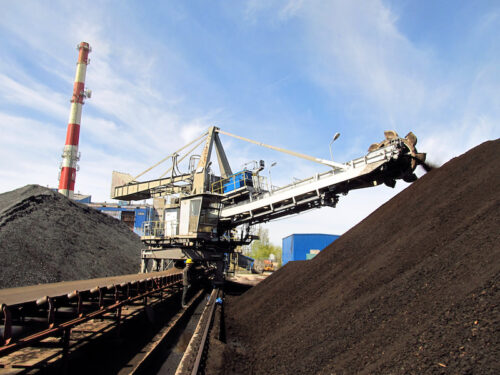>>REAL-TIME UPDATES IN THE WIRE. CLICK HERE<<<
China’s environmental protection regulator approved a total of 45 major projects involving a total of about 700 billion yuan of investment in the first half of the year and of that, 20 were coal mining projects involving 125 million tonnes of coal production capacity, said the country’s Ministry of Ecology and Environment on Friday.
In China, coal mining projects, after being approved by the National Development and Reform Commission (NDRC), the top economic planner, and the National Energy Administration (NEA), need to be approved by the environmental protection ministry before construction.
Amid China’s efforts to achieve the carbon-peaking and carbon-neutrality goals, several Chinese regions experienced blackout and production suspension last year. In order to ensure energy supplies and prevent another round of blackout, China has said it plans to increase coal capacity by 300 million tonnes this year, including 150 million tonnes from coal miners newly put into operations and 150 million tonnes from increased capacity of existing coal mines and resumption of suspended coal mines.
The State Council, the cabinet, has said that the country should support coal as a main energy source, improve review and approval mechanism for coal production and project construction.
After a series of government measures, China’s coal output rose in the first half of the year. According to data from the National Bureau of Statistics (NBS), the country’s produced 2.19 billion tonnes of coal in the first six months, rising 11% from the same period last year.
In June alone, coal output reached 380 million tonnes, rising 15.3% from a year earlier, accelerating by 5 percentage points from the previous month, showed the data.
Several local governments have set targets for coal production increase this year. Shanxi province, one of the largest major coal-production hubs, said it aimed to raise annual coal output by 107 million tonnes in 2022 from the previous year to 1.3 billion. The province is also seeking to raise coal production by another 50 million tonnes in 2023 to 1.35 billion tonnes. Read more …
Northwest China’s Shaanxi province, another coal production hub, had said in April that it planned to approve over 8 million tonnes of new coal capacity this year and its coal output is expected to increase by 2.9% in 2022 from the previous year to 720 million tonnes.
Xinjiang Uyghur Autonomous Regions will promote construction of 160 million tonnes of new coal capacity this year. In addition, Yunnan province aims to add more than 10 million tonnes of coal capacity in 2022.
According to estimates by TF Futures in April, China’s thermal coal output is expected to rise by 200 million tonnes or by 4.9% in 2022 from the previous year.
Despite the higher output, China’s coal prices remain elevated. According to data from the China Electricity Council, spot price of 5,500 Kcal/kg thermal coal traded at northern China ports hit 1,261 yuan per tonne, down 1.3% from the previous wee, but surging 33.2% from the same period last year.
Cinda Securities said in a note that, despite the authority’s relaxation of coal project approval, coal miners are reluctant to increase capacity.
Given the carbon-peaking and coal-neutrality goals, many companies are pessimistic about the industry’s long-term development and most of them choose to maintain current operations and meanwhile taking advantage of the current high coal prices to make up for losses generated in previous years, it said.
Meanwhile, most coal mining companies’ debt-to-asset ratio is currently at 63% – 60% and their borrowing from financial institutions’ is restricted and funding cost is high, making them cautious toward expanding investment, it said.
In terms of coal imports, the Russia-Ukraine tensions have tightened global coal supply. The tight oil and natural gas supply in the international market has forced several countries in Europe to resume operation of coal-fired power plants, and meanwhile the EU imposed sanctions on Russia coal shipments and stepped up coal purchases from other regions, further tightening coal supplies.
Thermal coal at Australia’s Newcastle port has reached hit $433.9 per tonne (about 2,929.2 yuan per tonne), surging 148% from the start of the year.
The higher coal prices in the international market has further dampened China’s coal imports. In the first half of the year, China imported 115 million tonnes of coal, sliding 17.5% from the same period last year, according to official data.
According to estimates by TF Securities, full-year coal imports in 2022 are expected to decline by about 30% from the previous year to 70 million – 100 million tonnes, making it the major drag on domestic coal supply.

